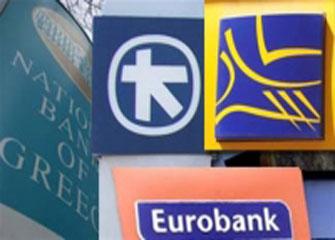Italy’s 30-year bonds rose, pushing yields down to a record, as the European Central Bank’s newly announced bond-buying plan shielded the securities from contagion after anti-austerity party Syriza won elections in Greece.
While Greek 10-year (GDBR10) bonds fell, that move only pared last week’s gains made when the ECB unveiled its quantitative-easing measures. Syriza leader Alexis Tsipras has said he plans to win a writedown of Greek public debt and abandon budget constraints that were imposed in return for aid, while keeping Greece within the euro bloc. His party will form a coalition government with the Independent Greeks. Benchmark German 10-year yields rose from a record low.
“If you are a broad European investor you should be relatively relaxed,” Michael Krautzberger, the London-based head of euro fixed income at the world’s biggest money manager BlackRock Inc. said in an interview on Bloomberg Television’s “The Pulse” with Francine Lacqua. “If you look at the long end in Italy, the long end in Spain, they are actually up in price, down in yield. If the market were super concerned about spillover, we wouldn’t have those reactions.”
Italy’s 30-year yield fell 17 basis points, or 0.17 percentage point, to 2.51 percent as of 4:07 p.m. London time and touched 2.504 percent, the lowest level since Bloomberg began compiling the data in 1994. The 4.75 percent bond due in September 2044 climbed 4.535 or 4.535 euros per 1,000-euro ($1,126) face amount, to 146.99.
The nation’s 10-year yield fell six basis points to 1.47 percent. The rate touched a record-low 1.413 percent on Jan. 23. Spanish 30-year yields slid 13 basis points to 2.29 percent and reached 2.283 percent, the lowest on record.
ECB Buying
The ECB said on Jan. 22 it will buy 60 billion euros a month of public and private debt until September 2016 to revive inflation, sparking a surge in bonds that sent yields from Ireland to Spain to record lows. The average yield to maturity on euro-area government debt dropped to 0.6365 percent on Jan. 23, the least since at least 1995, according to Bank of America Merrill Lynch indexes.
That’s helped offset concern that Syriza’s decisive win may boost anti-austerity parties in neighboring nations, such as anti-establishment group Podemos in Spain. Syriza’s opposition to economic reforms demanded by creditors risks an exit from the euro, according to Antonis Samaras, the outgoing premier.
Syriza has said it won’t ask private bondholders to take losses.
‘Risky Proposition’
Greek 10-year yields rose 57 basis points to 8.98 percent. The rate tumbled more than one percentage point in the previous three days as the ECB outlined its program of sovereign-debt purchases, while saying Greece wouldn’t immediately be included in the plan. The nation’s three-year rate increased 173 basis points to 11.80 percent.
Greek bonds are “a very risky proposition,” Francesco Garzarelli, Goldman Sachs Group Inc.’s co-head of macro and markets research, said in an interview on “On The Move” with Jonathan Ferro. “If we are here talking about Greek debt restructuring, re-profiling, that should not have large contagion effects. Italian debt, Spanish debt has performed very strongly.”
Greece’s bonds have already come through the biggest debt restructuring in history. In 2012, with its euro membership in jeopardy and the currency region close to splintering, the government persuaded private bondholders to write down about 100 billion euros.
Bond Trading
Trading of Greek government bonds through the electronic secondary securities market, or HDAT, was 37 million euros on Jan. 23, ANA reported. That brought the total for the week to 107 million euros, based on data from the Bank of Greece website. Monthly trading volumes plunged to zero in October 2011 from a peak of 136 billion euros in September 2004, the data show.
The difference between the bid and offer yields for Greek 10-year securities, a measure of the bonds’ liquidity, was about 26 basis points on Monday, according to data compiled by Bloomberg. In contrast, the spread on similar-maturity German bunds, the euro region’s benchmark securities, was 0.2 basis point.
German 10-year yields rose three basis points to 0.39 percent after falling to 0.337 percent, the least since Bloomberg began collecting the data in 1989.
Greek government debt delivered the worst returns among sovereign securities tracked by Bloomberg’s World Bond Indexes in the six months through Jan. 23. Greece’s bonds lost 12 percent, while Italy’s earned 7.9 percent, Spain’s 8.1 percent and Germany’s 6.4 percent.



















